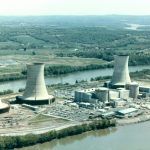Fukushima: An industrial disaster but not a nuclear ‘apocalypse’
By Ramamurti Rajaraman | March 30, 2011
The magnitude 9.0 earthquake that shook northern Japan on March 11, combined with the giant tsunami that followed, is one of the worst natural disasters that any country has had to bear in recent times. As of today, Japan’s National Police Agency reports 27,652 people dead or missing. The gravity of the disaster has been matched only by the stoic and disciplined response of the Japanese public to this massive tragedy.
But what of the consequent calamities at four of the six nuclear reactors at Fukushima Daiichi? That too has been a huge disaster but more in industrial than human terms. At the time of this writing there is still no authenticated report of a single member of the public having died because of the radioactivity released, and there have been no reported deaths among the exceptionally brave workers at Fukushima Daiichi, although two people were reported missing as of March 17. Undoubtedly, reports of radiation casualties will emerge in the coming days, but these deaths will likely pale in comparison with the number of people crushed or swept away by the tsunami and earthquake. The crisis at Fukushima Daiichi is not a nuclear “apocalypse,” as the European Union’s energy commissioner, Germany’s chancellor, and Germany’s foreign minister recently dubbed it.
Yet the international media, the public, and their governments have been more obsessed with developments at the nuclear site than with the far greater damage caused to a vast population by the earthquake and tsunami combined. In some parts of the United States, Canada, and Russia, panicked consumers rushed to buy potassium iodide pills. In China, people began to hoard and consume unhealthy amounts of iodized salt despite government reassurances. Germany immediately shut down seven nuclear power plants — a response totally disproportionate to the Japanese incident.
This is not to say that Japan and nearby countries should not take all steps they can to minimize the health impacts of radioactive fallout. Nor should we ignore important lessons to be learned from Fukushima. For example, restrictions against locating reactors in areas prone to natural disasters such as earthquakes, tsunamis, and hurricanes (let alone a combination of these) must be made even more stringent than before. Clearly there has to be even more redundancy in the backup measures for cooling reactor cores and spent fuel rods when the power supply for pumps and valves is interrupted or destroyed. Regulators must also address the problem of how to safely vent gases from containment vessels without causing explosions that can damage protective structures.
But there are also a few positives from the nuclear energy industry’s point of view. The physical structures guarding all six reactors at Fukushima appear to have survived the initial onslaught of one of the most powerful earthquakes ever recorded. The reactors switched off immediately after the quake struck, as they are supposed to do. The subsequent partial meltdown and explosions were not caused by a failure of the reactors themselves, but rather by failures in the electrical supply needed to cool the hot fuel in the reactors and storage pools after shutdown.
Japan, the United States, India, and other nations have taken this opportunity to order a complete review of safety measures at all nuclear facilities. That is wise, and it is a more appropriate response than panicking or rolling back nuclear programs. It is also important for government regulators and the nuclear industry to educate the public about the harm that radioactivity can and cannot do, at any given dosage. For this educational effort to succeed and to be credible, nuclear officialdom must achieve a far higher level of transparency than is currently seen in many countries.
Together, we make the world safer.
The Bulletin elevates expert voices above the noise. But as an independent nonprofit organization, our operations depend on the support of readers like you. Help us continue to deliver quality journalism that holds leaders accountable. Your support of our work at any level is important. In return, we promise our coverage will be understandable, influential, vigilant, solution-oriented, and fair-minded. Together we can make a difference.
Topics: Nuclear Energy, Opinion















